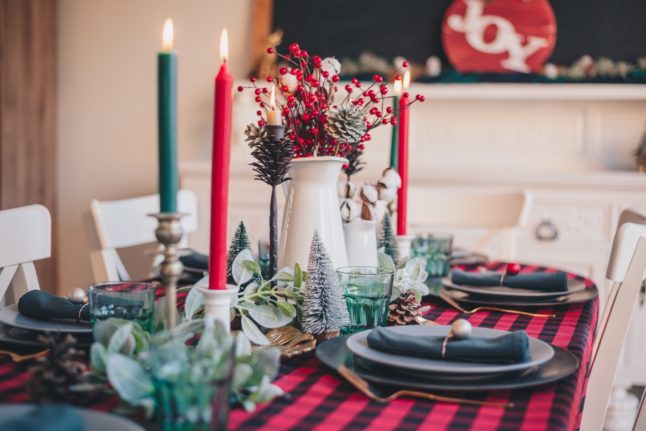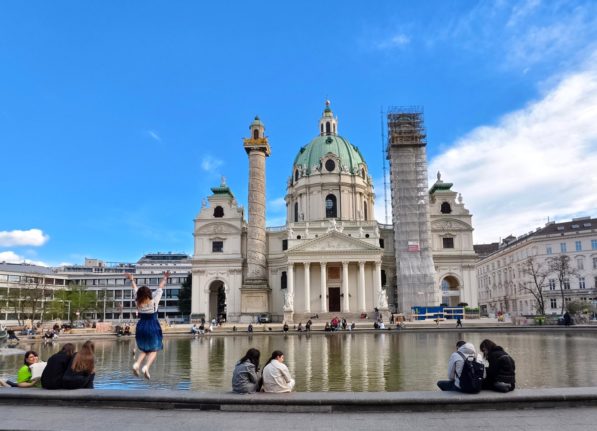For most people from English-speaking countries, Christmas is celebrated on December 25th with a decadent lunch of roasted turkey or ham.
In Austria, though, the main celebrations take place on the evening of December 24th, usually by gathering with friends and family for a meal. The shops will close early, and families will gather to decorate the Christmas tree – yes, it’s not uncommon for Austrians to follow this tradition of only decorating the tree on December 24th.
They also meet for Christmas eve dinner, which can vary greatly depending on family traditions and Austrian regions. From raclette to roasted geese or cold meats, much can be served during the evening.
What does an Austrian traditional Christmas dinner look like?
As mentioned above, Christmas Eve dinner can vary greatly. Austria is a small country, but its provinces and villages often have their own traditions, influenced by neighbouring countries, centuries-old customs or recent immigration.
Each family may also have their own preferences, influenced by location, religion, migration background or individual family members’ preferences.
However, some dishes are very common on the night of December 24th:
Roast goose or roasted carp
Traditionally eaten with dumplings and red cabbage, roast goose (or duck) is often the main event of the Austrian Christmas dinner, especially filled with apples, chestnuts and cloves.
Goose is a popular dish throughout the whole winter, starting with the Martinigansl served around St Martin’s Day in mid-November.
Another typical big meal in Christmas eve is the Weihnachtskarpfen, or the Christmas carp. It can be served with potatoes or dumplings and vegetables. Some families serve it with a (lemon) risotto.
Raclette
A Swiss dish with a devoted fanbase in Austria, you’ll be able to taste this at Christmas market stalls or at Austrian homes, especially in the west of the country. Melted cheese is used to top bread or potatoes, before adding extra fillings like meat, onions, and vegetables.
Bratkartoffel and Kartoffelpuffer
Two delicious ways of getting your potato fix this winter. Bratkartoffel are thin, crispy slices of fried potatoes are available through the winter at street food stalls in the Christmas markets as well as the roasted chestnut (maroni) stalls that pop up throughout Austria, while Kartoffelpuffer are potato pancakes usually made in a coal stove, which can be served with different toppings.
Bratwurst with Sauerkraut
Of course the traditional sausage in Austria would also be present in some family homes on Christmas year – even if it’s not that common to eat red meat in the date. You can serve it with sauerkraut and roasted potatoes.
A light meal
Some families prefer to keep it light and simple, serving breads, cold cuts (preferably nothing with red meat due to the religious date, but smoked salmon is a good option), and pates.
The type of meal you should could or should expect to get really depends on personal (or family) preference. Ask ahead if your guests have any dietary restrictions and be prepared to be served any of these delicious traditional dishes (it’s also ok to let the host know if you have any preferences or special dietary requirements).



 Please whitelist us to continue reading.
Please whitelist us to continue reading.
Member comments